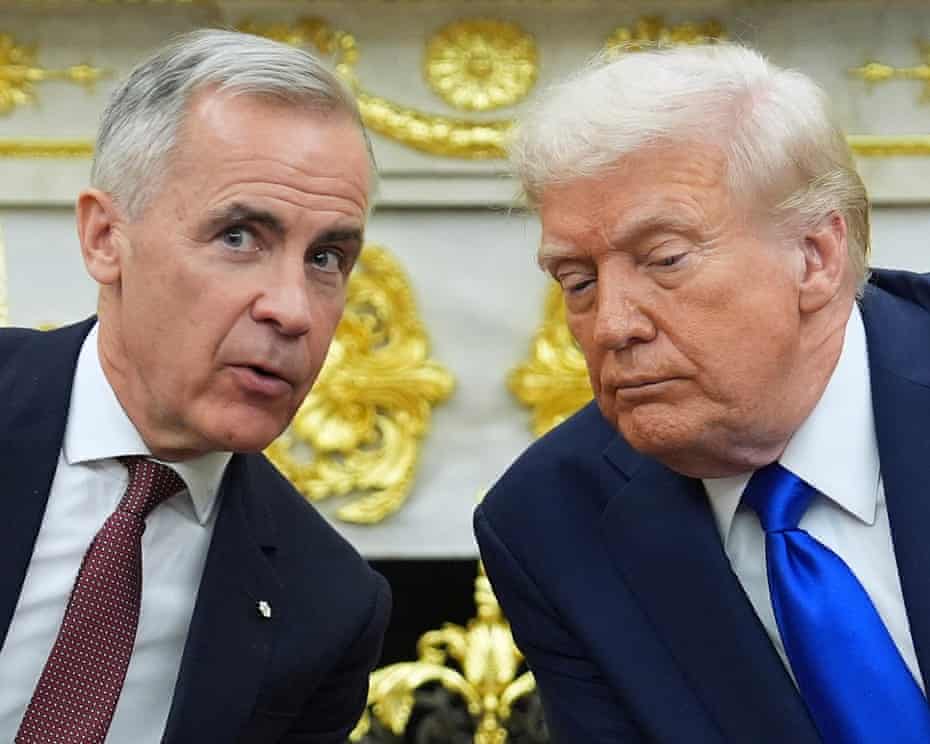The Canadian prime minister, Mark Carney, has confirmed that he apologised to the United States president, Donald Trump, over a political advertisement attacking tariffs, while also revealing that he had urged Ontario’s premier, Doug Ford, not to broadcast the controversial campaign.
Speaking to reporters on Saturday following an Asia‑Pacific summit in South Korea, Carney said he had delivered the apology privately during a dinner hosted by South Korea’s president earlier in the week. “I did apologise to the president,” he told journalists, echoing remarks made by Trump the previous day.
The advertisement in question, commissioned by Ford, featured a clip of former US president Ronald Reagan warning that tariffs lead to trade wars and economic decline. Mr Carney disclosed that he had reviewed the material before it aired but had opposed its release. “I told Ford I did not want to go forward with the ad,” he said.
The fallout was swift. In response to the broadcast, Trump announced an increase in tariffs on Canadian goods and confirmed that Washington had suspended trade negotiations with Ottawa. The escalation marked a fresh setback in cross‑border relations, which have been strained by disputes over trade and energy policy.
Although Trump described his conversation with Carney in Seoul as “very nice”, he maintained on Friday that the United States would not resume trade talks with Canada for the time being. The prime minister’s conciliatory tone appeared designed to limit further damage, though it remains unclear whether his intervention will ease tensions.
Carney’s visit to Asia was not confined to discussions with Washington. On Friday he held talks with the Chinese president, Xi Jinping, which he characterised as a turning point in bilateral relations after years of mistrust. The meeting was the first substantive encounter between Canadian and Chinese leaders since 2017, when then prime minister Justin Trudeau exchanged only brief words with Mr Xi at a gathering in San Francisco.
Relations between Ottawa and Beijing have deteriorated sharply in recent years. Several Canadian citizens were detained in China, with some facing execution, while Canadian security agencies concluded that Beijing had interfered in at least two federal elections. Against this backdrop, Carney’s meeting with Xi was seen as a significant diplomatic step. He confirmed that the issue of foreign interference had been raised, alongside broader discussions on trade and regional security.
The prime minister emphasised that his government’s wider strategy was to reduce Canada’s reliance on the United States, a dependency that has long shaped the country’s economic fortunes. “It can’t happen overnight, but we’re moving very fast,” he said, pointing to efforts to strengthen ties across Asia and diversify export markets.
Observers noted that Carney’s dual engagements in Seoul and Beijing underscored the delicate balancing act facing Canada. On the one hand, the country remains deeply integrated with the American economy, making any rupture with Washington potentially costly. On the other, the government is seeking to expand its presence in Asia, where rapid growth offers new opportunities but where political risks remain high.
Ford’s role in commissioning the advertisement has also drawn scrutiny. Known for his outspoken style and frequent comparisons to Trump, the Ontario premier has often clashed with federal leaders over economic and social policy. His decision to invoke Ronald Reagan’s words in the campaign was widely interpreted as an attempt to appeal to conservative voters, though critics argued it risked undermining Canada’s national interests at a sensitive moment.
For Carney, the episode highlights the challenges of managing both domestic political pressures and international diplomacy. His apology to Mr Trump may have been intended to draw a line under the dispute, yet the suspension of trade talks suggests that the repercussions will not be easily resolved. At the same time, his outreach to China signals a determination to pursue alternative partnerships, even as questions linger over Beijing’s conduct.



